Intel 670p 2TB Performance Testing
We are moving towards using larger test sizes on our benchmarks, but on several tests, we also used the smaller default test sizes. This allows us to see the difference between lighter and heavier workloads.
CrystalDiskMark x64
CrystalDiskMark is used as a basic starting point for benchmarks as it is something commonly run by end-users as a sanity check.
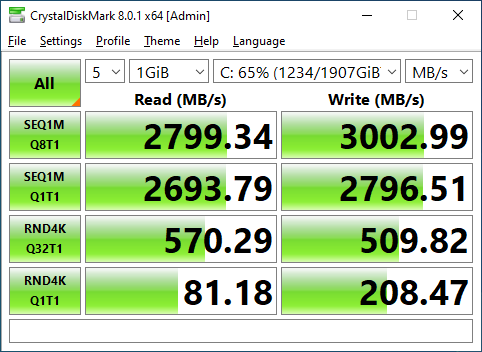
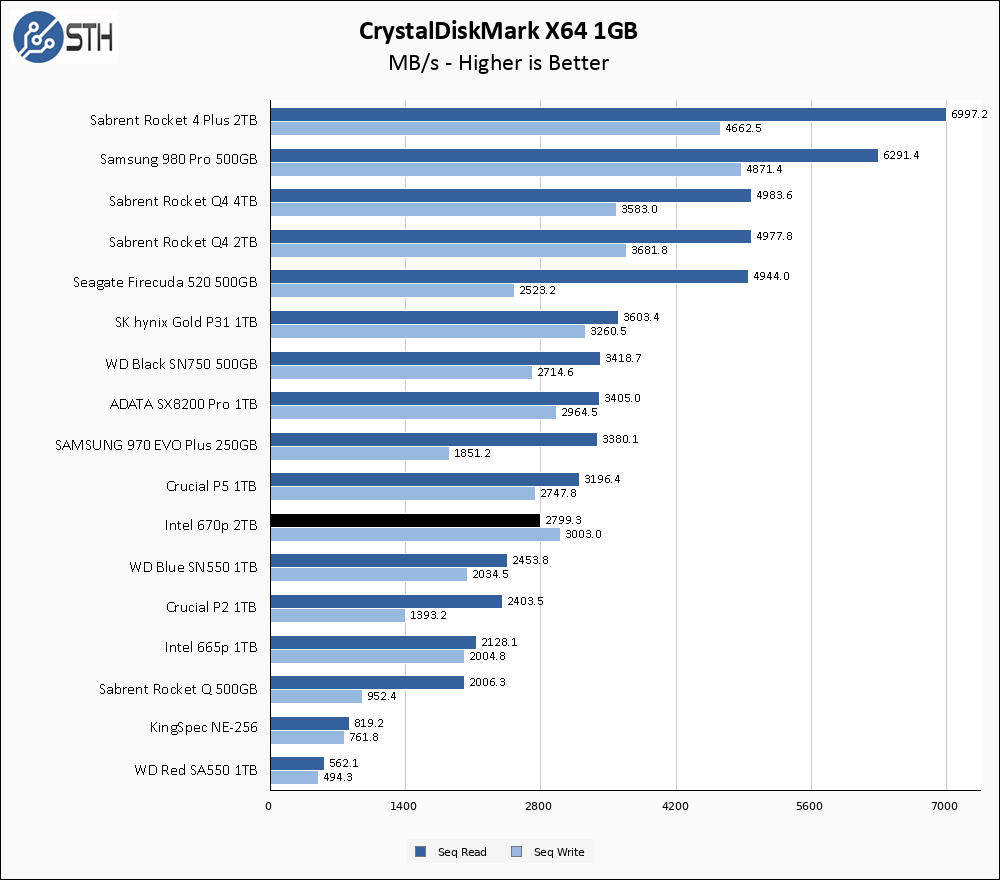
Right out the gate, the Intel 670p 2TB manages to significantly improve over the 665p, and yet not quite live up to all of its advertised sequential speeds. Write performance is exceeding the 2700MB/s specification, but reads come in at a significant deficit to the advertised 3500MB/s. All together this lands the drive squarely in the middle of the PCIe 3.0 pack.
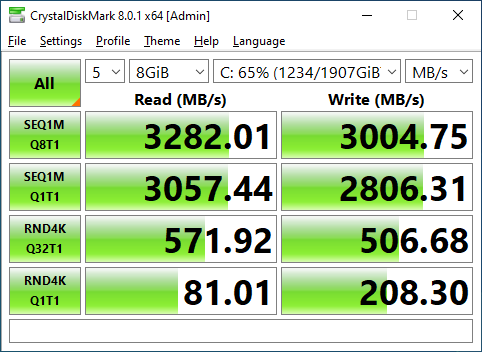
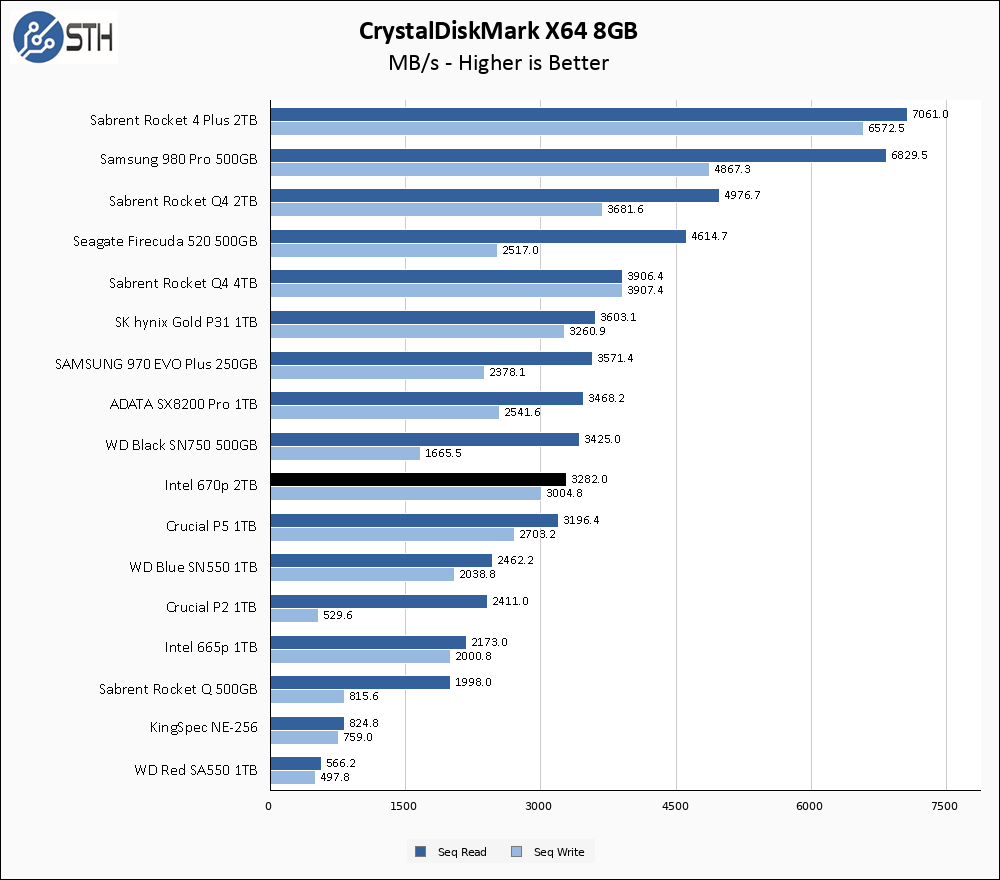
On a very positive note, read speeds significantly improve when moving to the larger 8GB CrystalDiskMark test, though still does not quite approach the 3500MB/s specifications.
ATTO Disk Benchmark
The ATTO Disk Benchmark has been a staple of drive sequential performance testing for years. ATTO was tested at both 256MB and 8GB file sizes.
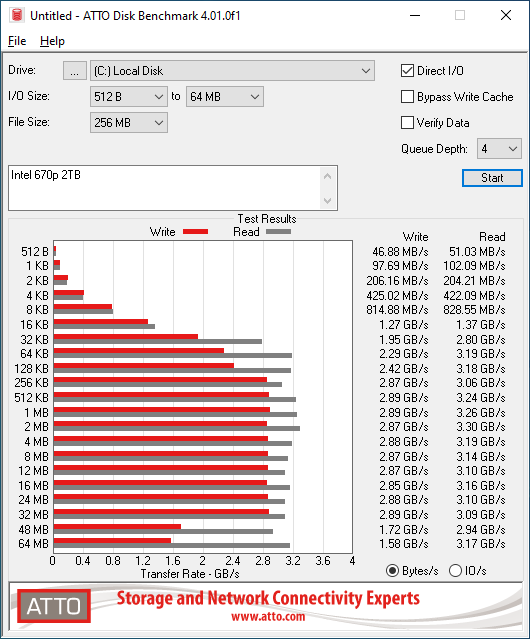
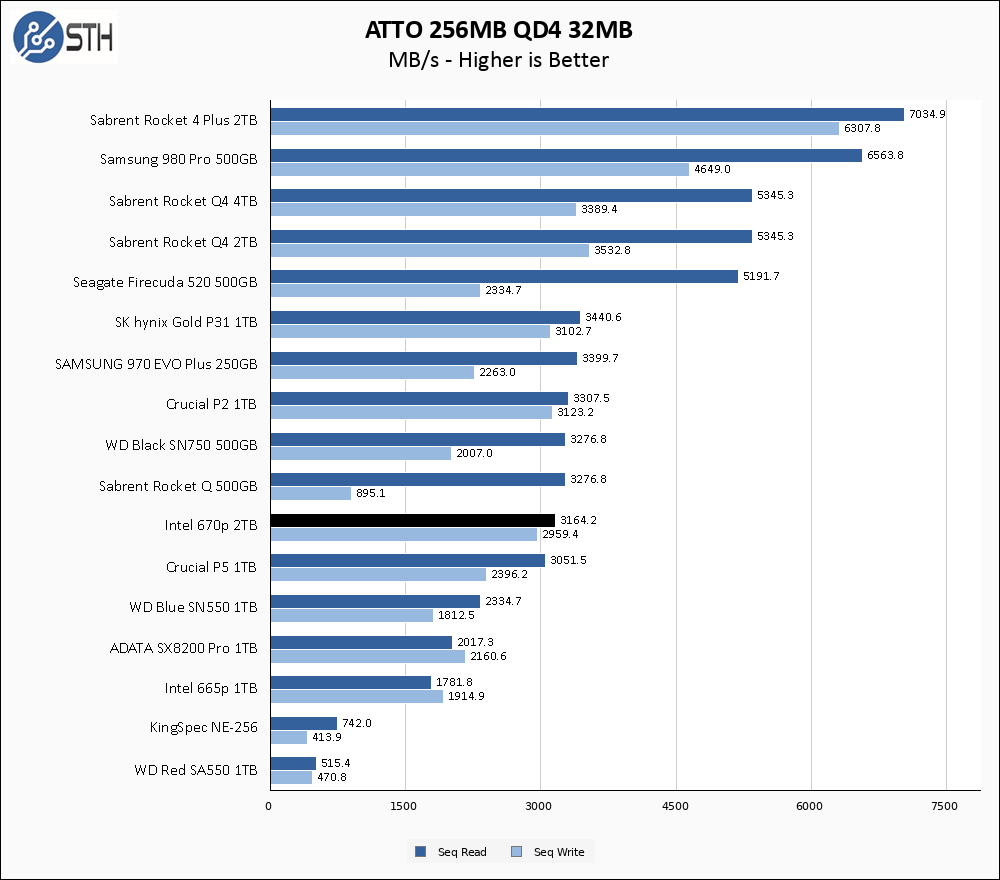
Much like in CrystalDiskMark, initial ATTO results show write performance that exceeds advertised rates, and read performance that does not. In the good news department, both scores are actually pretty good in the context of other PCIe 3.0 SSDs; my only complaint is the mismatch between advertised speeds and actual results.
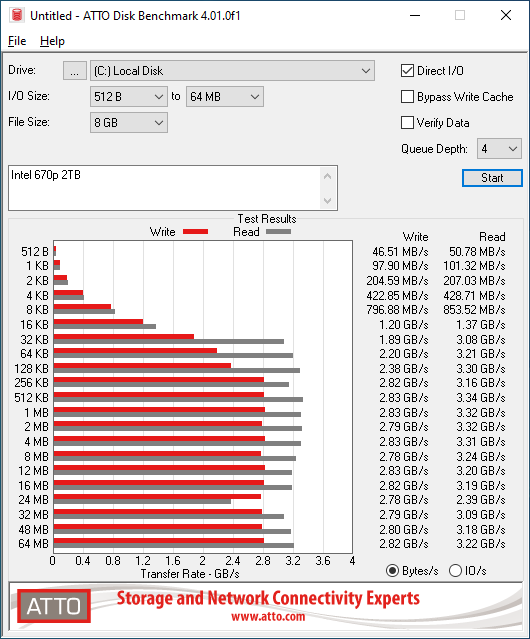
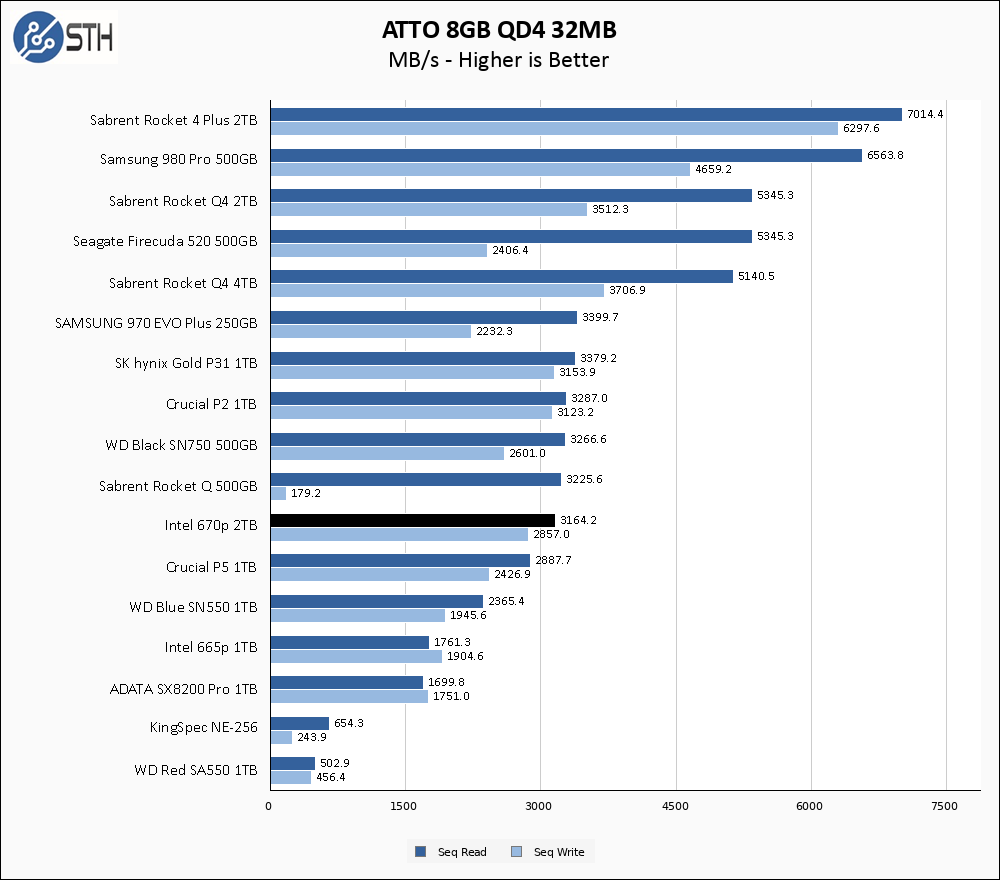
The larger ATTO test turns in results nearly identical with the smaller set, and it is always nice to see a drive that is unaffected by the larger benchmarks.
Anvil’s Storage Utilities
Anvil’s Storage Utilities is a comprehensive benchmark that gives us a very in-depth look at the performance of drives tested. This benchmark was run with both a 1GB and 8GB test size.
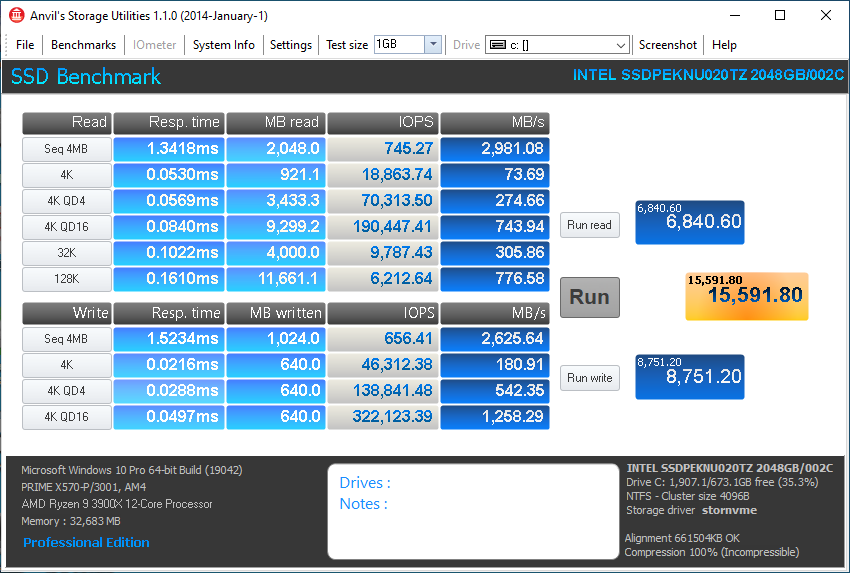
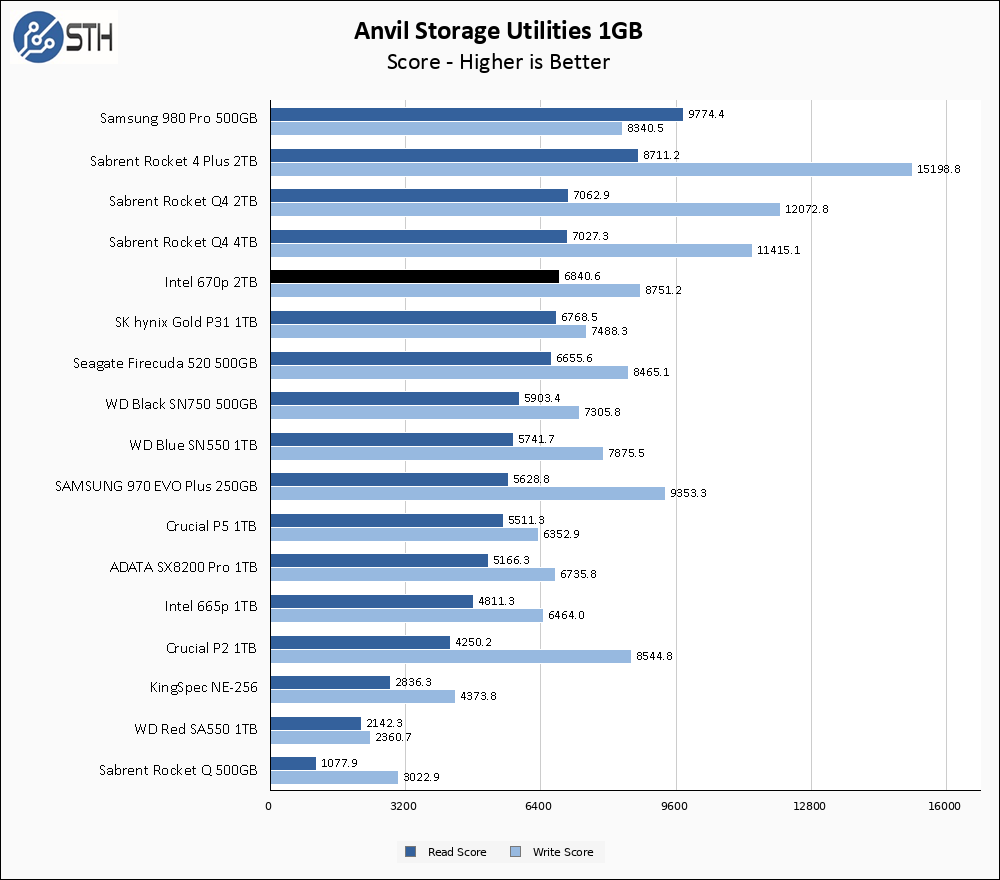
Very strong results in Anvil have sent the Intel 670p 2TB to the very top of our PCIe 3.0 SSD charts.
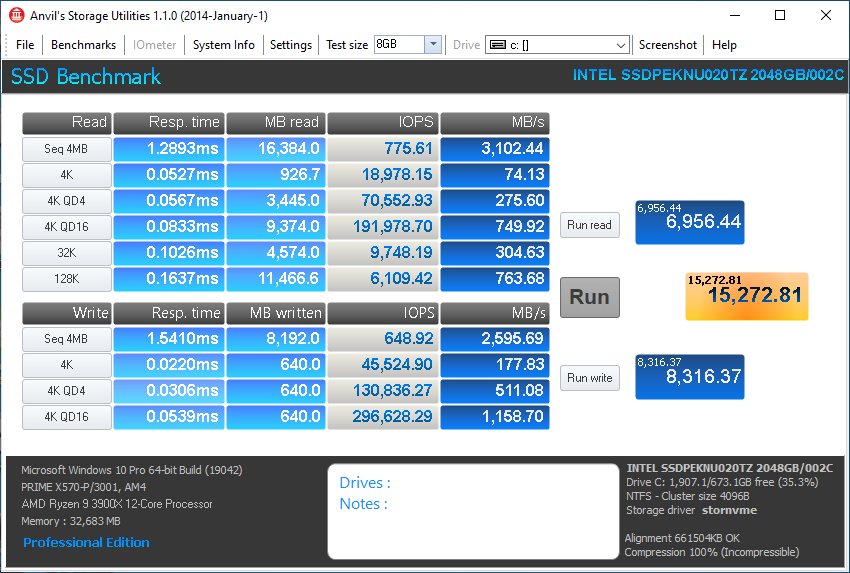
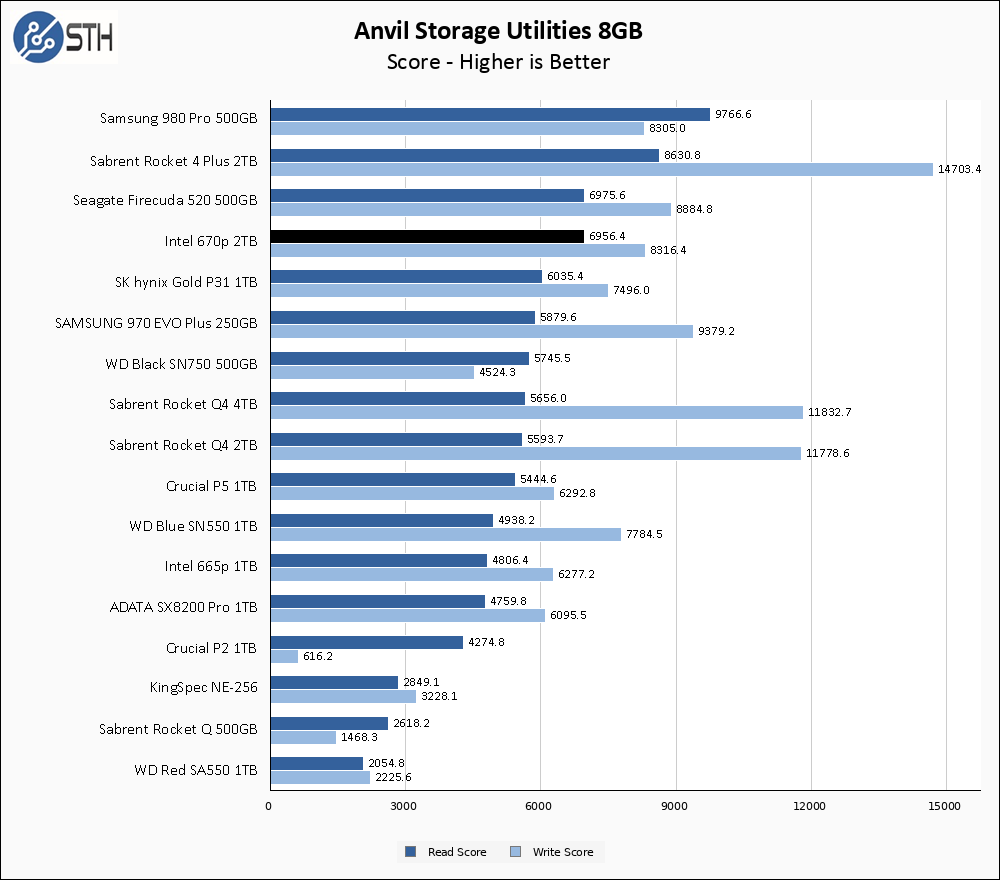
The good results in Anvil continue with the larger test set, with the Intel 670p 2TB now matching or beating a number of PCIe 4.0 SSDs in read score, and a commanding lead over the PCIe 3.0 competitors. Strong 4K random results are what allows this drive to take the lead versus competitors like the SK hynix Gold P31 1TB.
AS SSD Benchmark
AS SSD Benchmark is another good benchmark for testing SSDs. We run all three tests for our series. Like other utilities, it was run with both the default 1GB as well as a larger 10GB test set.
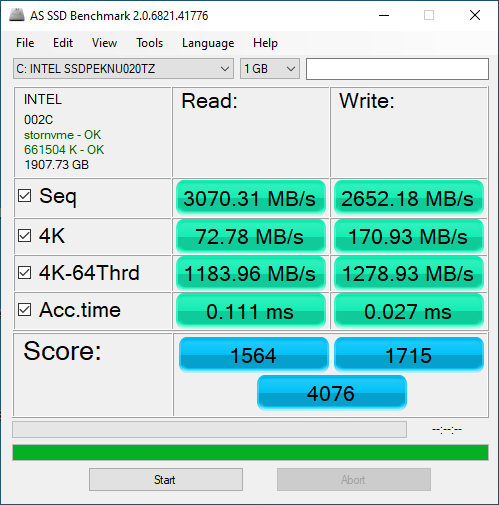
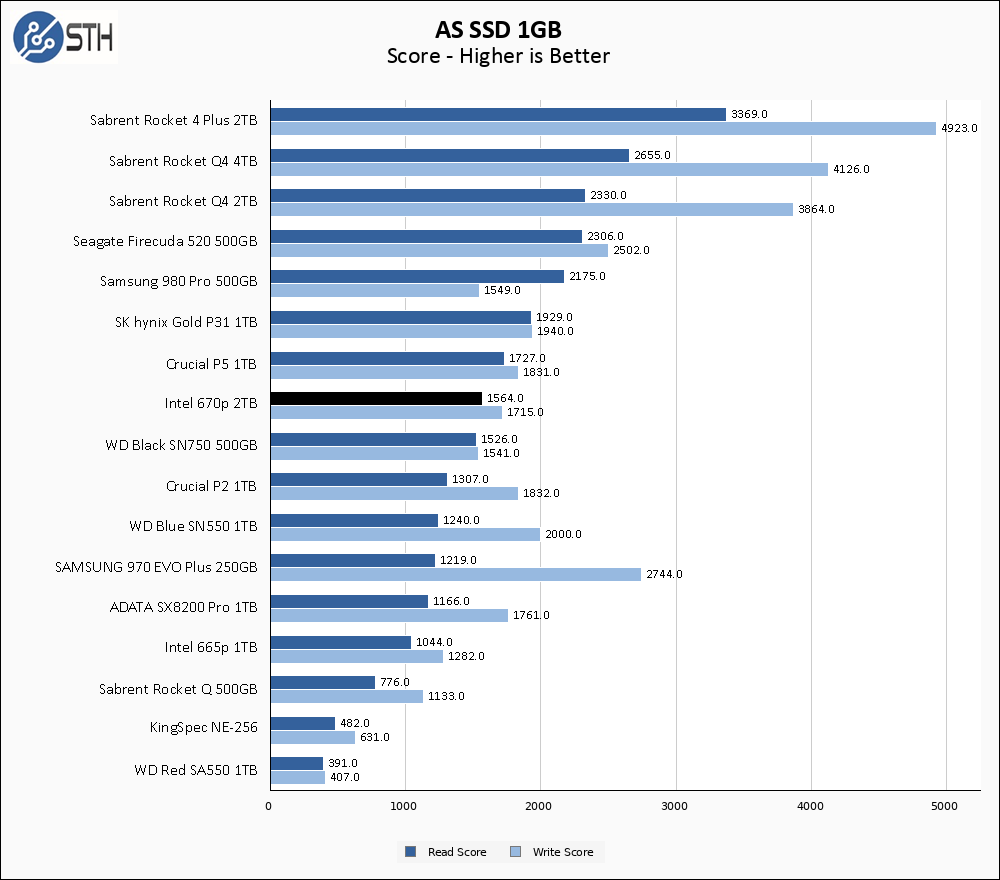
In AS SSD, the Intel 670p 2TB returns to the middle-of-the-pack, with a respectable but not leading performance.
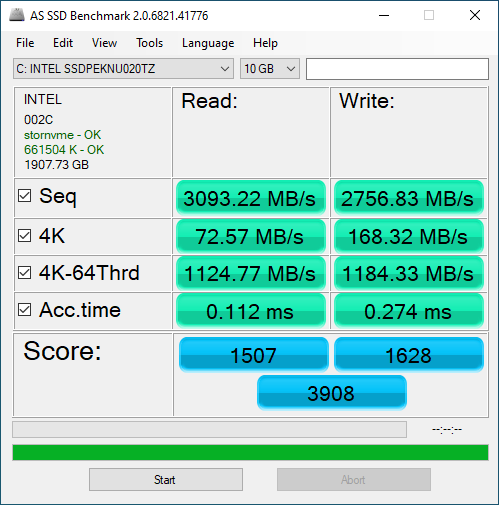
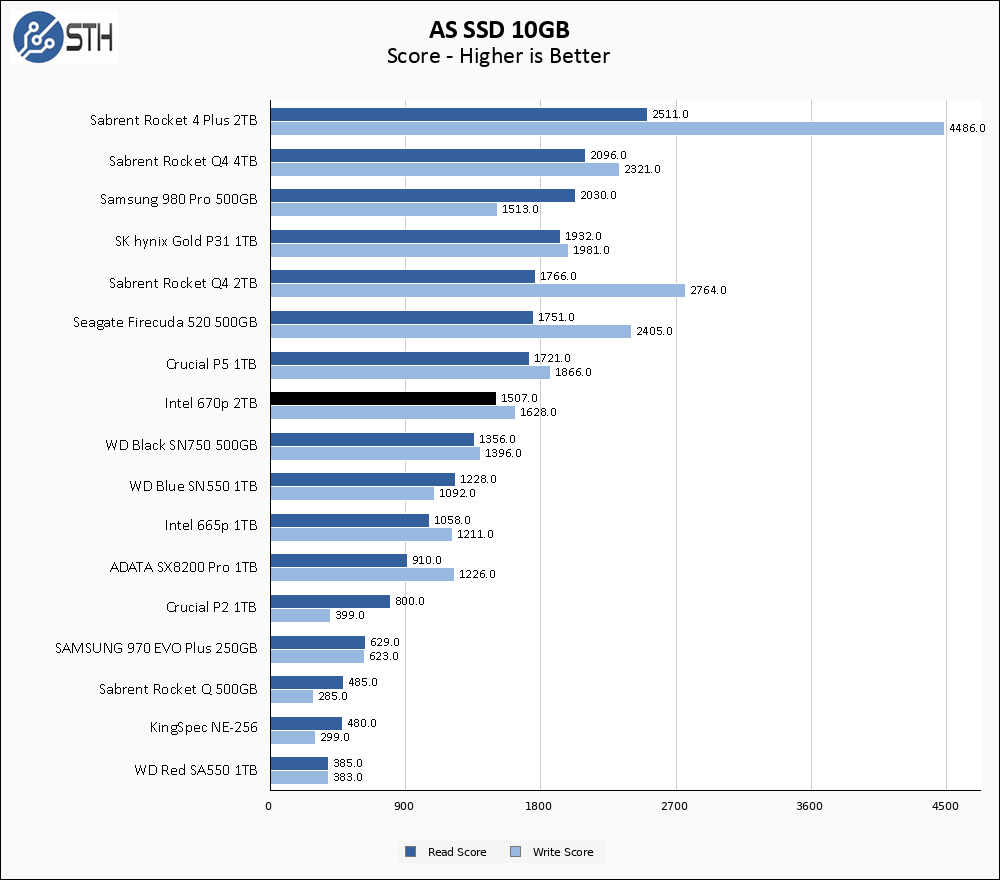
Very little changes with the larger AS SSD, both with regards to the 670p’s score relative to the smaller test as well as the relative positioning of the drive on our charts.
SPECworkstation, thermals, and our conclusion are up next.




The 1TB 660p was regularly available for the $89 they’re quoting for the 512GB 670p, just insanity. I thought QLC was supposed to be dirt cheap, not more expensive than TLC.
I would put it down as simply an instance of MSRP not reflecting street price.
On page 1, you have TLC instead of QLC:
> The Intel 670p line of TLC-based SSDs is available in 512GB, 1TB and 2TB capacities.